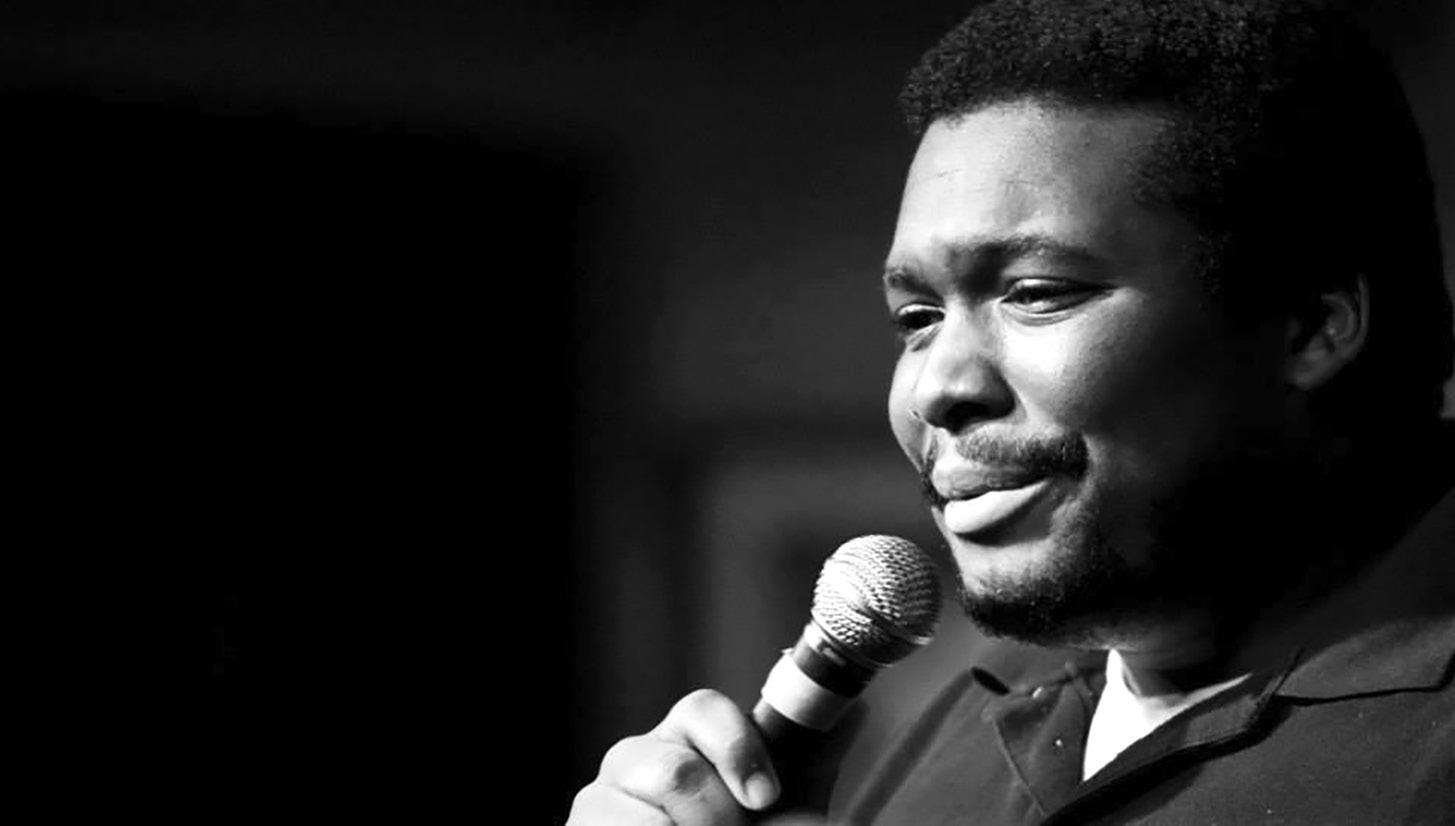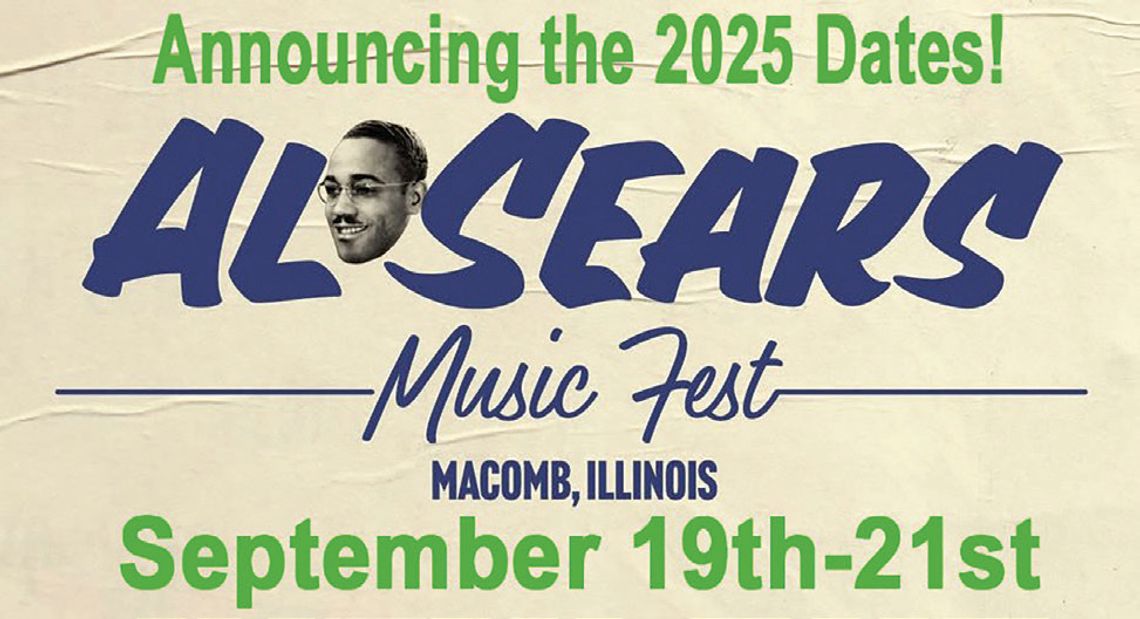The community will be served music with a twist of history when the Al Sears Music Fest hits the Our Front Porch stage at Western Illinois Museum. The fest will begin Friday, Sept. 19, with a performance by the WIU Jazz Studio Orchestra at American Legion Post 6 in Macomb. Performances and a discussion about Sears’ impact on the music world will be Saturday, Sept.
20, and Sunday, Sept. 21, at the museum.
“The venue in the museum is a special place,” said Whitney Ashe, director of jazz studies at Western Illinois University and music fest chair. “It is a such a well-curated space for some incredible history that's happened in this region. It's a fun place to go because you can listen to the music, and also walk through the museum and experience the space. I’ve played a lot of clubs and concert halls in my career, but I’ve never played next to, like, a plow from 1885. That’s cool.”
In its second year, the event features several genres of music in addition to its jazz roots. It is a revival of the Al Sears Jazz Festival that ran from 2002 to 2016.
Born in Macomb in 1910, saxophonist Sears was an influencer of jazz, rhythm and blues, and early rockand- roll.
Ashe and the music fest committee curated a lineup of performers like a museum director chooses exhibits.
It includes local talent and headlining acts.
“I worked with singer Bryan Anthony in a couple of different situations. I thought he was a great singer,” he said about Saturday night’s main attraction.
“I started working with him again a couple of years ago and he had gotten even better. He really has a feel for what to do with the American songbook. He’s done a lot of the same gigs as Frank Sinatra but he’s not a Sinatra impersonator. He has his own take on songs, and I think music fans are gong to appreciate what he does because it’s pretty special.”
Ashe feels the same excitement about the performer scheduled on Sunday afternoon.
“Yoseph Henry was a student of mine at Western,” he said. “I remember the first time I heard him singing.
I was playing [piano] for his audition and the entire faculty looked around like Who is this guy? He’s got a little R&B and a huge gospel background. He’s pretty creative.”
A serendipitous beginning
The Al Sears Jazz Fest began with a yard sale transaction. WIU business professor and jazz enthusiast, Bill Maakestad was living in California when he bought a used jazz encyclopedia. He brought it back to Macomb and, thinking he had read it from cover to cover, sold it for a quarter to his friend, the late Jim O’Toole.
“Several weeks later, he called me and said, ‘Bill, did you see this Al Sears in the encyclopedia you had?’,' said Maakestad, who retired in 2009. “I hadn’t, and the wheels started rolling.”
The combination of WIU’s acclaimed jazz program, the desire to draw people into Macomb and then-Mayor Tom Carper’s experience in hosting live music at bars he had owned, made the time right for beginning a festival in honor of Macomb’s musical son.
Coordinated by Carper, the first committee comprised about 15 people, including first chairman Gary Ziegler, Maakestad and the late Ann Collins, a jazz pianist and professor who also was WIU music department chair.
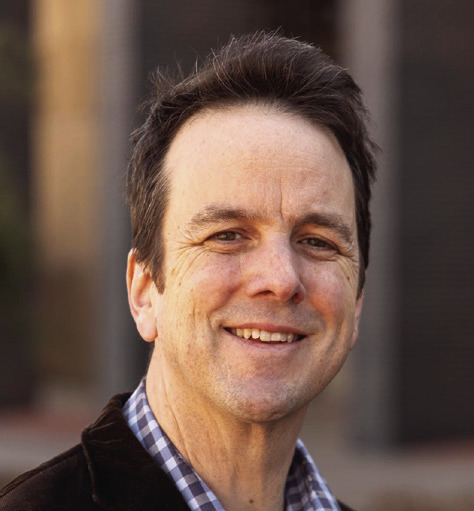
“It was a grass roots thing shared by the community and the university,” Maakestad said.
In its first few years, the one-day festival was held in a small grassy area on East Carroll Street, across from Chandler Park. Acts played on the university’s mobile stage. Later, the festival became a three-day event coupled with the Gazebo Art Festival in Chandler Park.
“It was a really great partnership, especially in the years that we had good weather, which was most years,” Maakestad said. In its later years, concerts and discussions were in several other venues, including COFAC Recital Hall, the museum and restaurants.
The Al Sears Jazz Fest had grown to become one of the longest-running free jazz festivals in the Midwest. But after 15 years, its founders were tired.
“It was hard. I just wanted to hand it off to someone who would be willing to take it over, and no one really stepped forward,” said Maakestad, who had led the event for nearly 10 years. “So we decided to have one last great festival [in 2016]. We had a good run.”
A music revival
Maakestad’s wish for finding someone to head the event was fulfilled eight years later. “I think several people had talked to Whitney. Interest was rekindled, and he agreed to take over in 2024,” he said.
Ashe has been teaching at the university for seven years, and he has been director of jazz studies for four years.
“When I came to Macomb, there wasn’t that much live music happening,” he said. “In the last couple of years, with programming at the museum, the Wine Sellers and elsewhere, and the influx of young faculty at the university, Macomb has a really unique position for being a destination for live music. I wanted to celebrate that and bring attention to a wider community.”
It was Ashe’s idea to change the name from a jazz fest to music fest.
“Al Sears is not as much of a household name as I think he should be,” he said. “His involvement in music was much wider than just jazz. I thought it would be nice to reflect that in both the name and the way we program the festival. I felt like a jazz-only festival would be much more limiting than what was appropriate for who he was.”
This year’s three-day program is bigger than it was in 2024, and Ashe envisions expanding it in the future.
Donations make it happen
Sharon Lindahl grew to love jazz through her late husband, Tate, who passed away in 2020. Long-time Macomb residents may remember his license plate: BIX LIVS, a tribute to Leon “Bix” Beiderbecke, a jazz cornetist for whom a long-running jazz festival in Davenport, Iowa, is named.

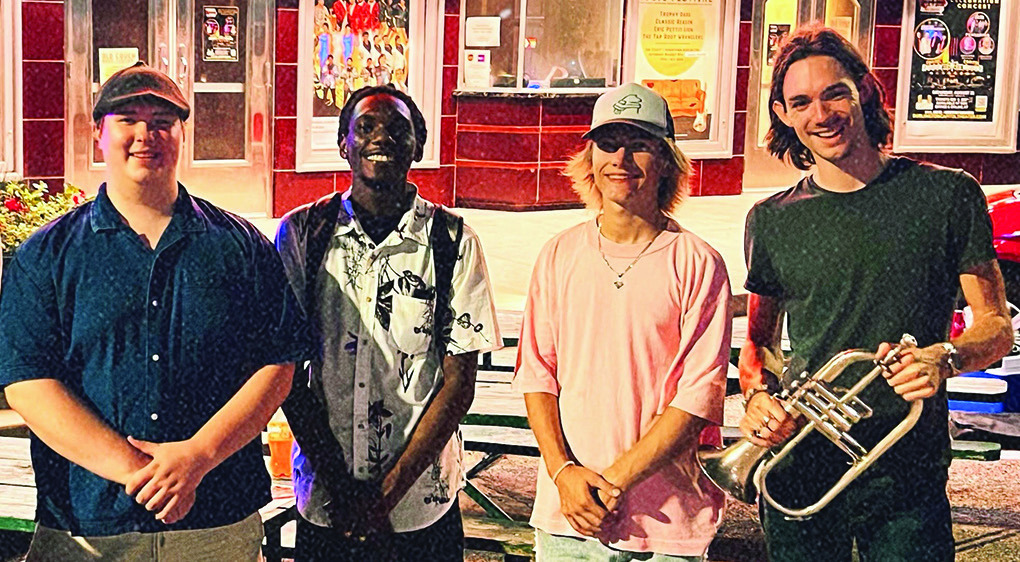
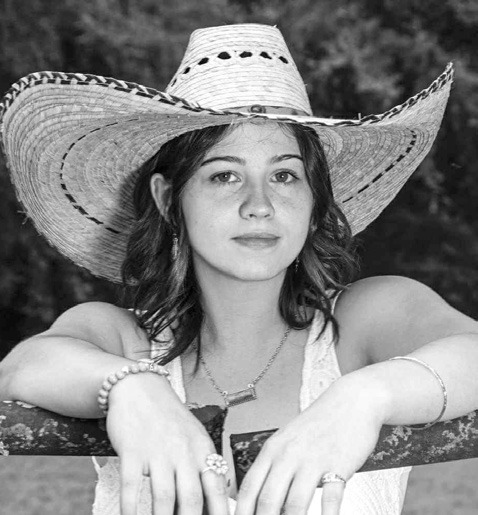
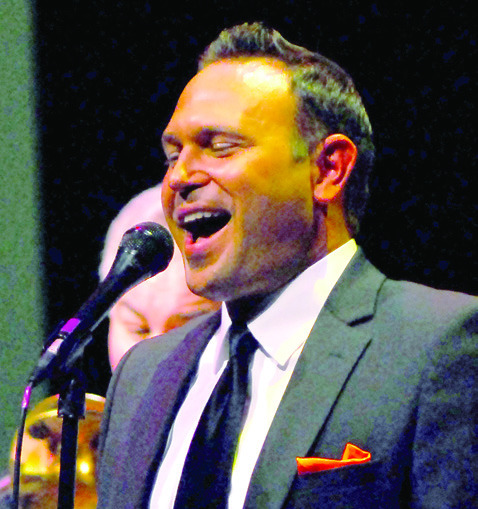
They were early supporters of Al Sears Jazz Fest, and she continues to support the renamed event.
“It’s darn good music. There’s so much talent here,” said Lindahl, who regularly enjoys live music at the university and The Wine Sellers. Besides providing financial support, she served on the planning committee for several years.
Last year’s music fest preparations began with about $1,000, the remainder of the account from the 2016 festival. Fundraising for the 2025 music fest began last year, with the committee raising another $10,000 from community members plus a grant from the Performing Arts Society. Besides hosting the festival, the Western Illinois Museum staff is supporting the event by handling planning and program management.
All performances this year are free, but donations will be accepted. Tax-deductible donations can be made online at wimuseum.networkforgood.com/projects/256756-2-25-alsears- music-fest
